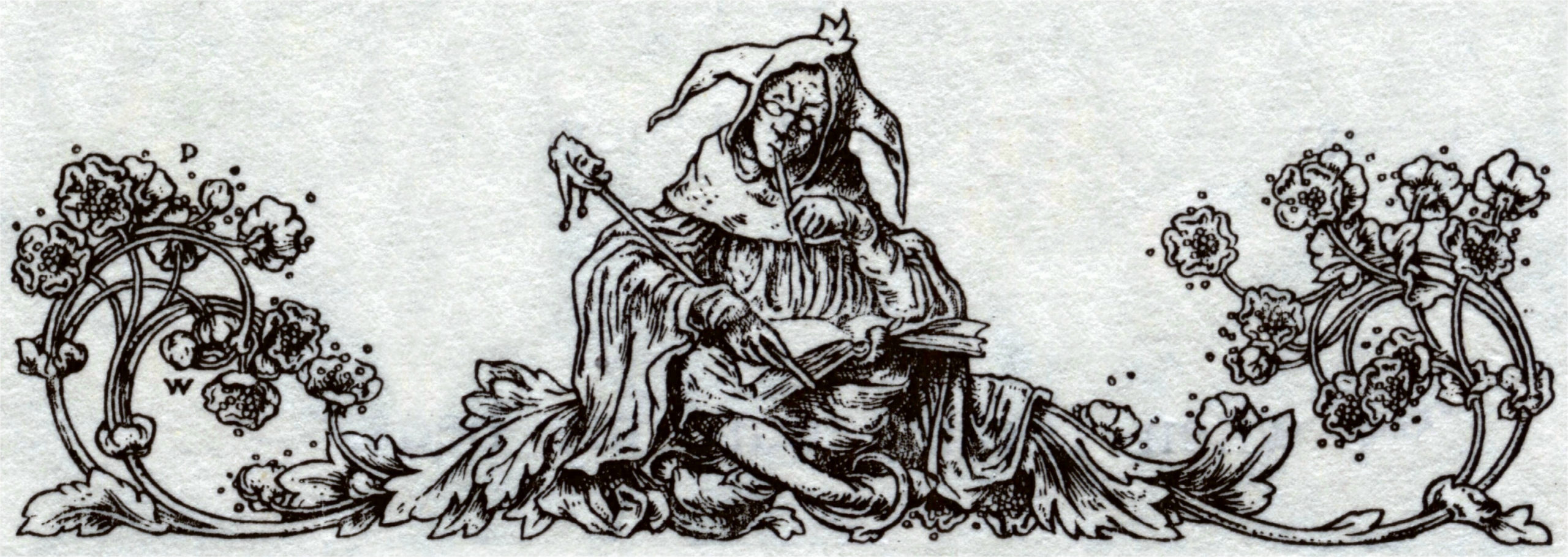One of the most popular poems of the 19th century, and reputedly a favorite of Queen Victoria, this work has
fallen into relative obscurity. It went through countless editions, and this edition is notable for its many
engravings.
Thorpe wrote this verse in trochaic heptameter, which has a very classic and dramatic cadence. I have included
the entire text of the poem below. I have scanned about 20 or 25 images in total from this book.
Title: Curfew Must Not Ring Tonight
Author: Rosa Hartwick Thorpe
Artist: F. T. Merrill and E. H. Garrett; Drawn and Engraved under the supervision of George T. Andrew
Publisher: Lee and Shepard
Date Published: 1882
Curfew Must Not Ring Tonight
England’s sun was slowly setting oe’r the hilltops far away,
Filling all the land with beauty at the close of one sad day;
And its last rays kissed the forehead of a man and maiden fair,–
He with steps so slow and weary; she with sunny, floating hair;
He with bowed head, sad and thoughtful, she, with lips all cold and white,
Struggling to keep back the murmur, “Curfew must not ring to-night!”
“Sexton,” Bessie’s white lips faltered, pointing to the prison old,
With its walls so tall and gloomy, moss-grown walls dark, damp and cold,–
“I’ve a lover in the prison, doomed this very night to die
At the ringing of the curfew, and no earthly help is nigh.
Cromwell will not come till sunset;” and her lips grew strangely white,
As she spoke in husky whispers, “Curfew must not ring to-night!”
“Bessie,” calmly spoke the sexton (every word pierced her young heart
Like a gleaming death-winged arrow, like a deadly poisoned dart),
“Long, long years I’ve rung the curfew from that gloomy, shadowed tower;
Every evening, just at sunset, it has tolled the twilight hour.
I have done my duty ever, tried to do it just and right:
Now I’m old, I will not miss it. Curfew bell must ring to-night!”
Wild her eyes and pale her features, stern and white her thoughtful brow,
As within her secret bosom, Bessie made a solemn vow.
She had listened while the judges read, without a tear or sigh,
“At the ringing of the curfew, Basil Underwood must die.”
And her breath came fast and faster, and her eyes grew large and bright;
One low murmur, faintly spoken. “Curfew must not ring to-night!”
She with quick step bounded forward, sprang within the old church-door,
Left the old man coming slowly, paths he’d trod so oft before.
Not one moment paused the maiden, But with eye and cheek aglow,
Staggered up the gloomy tower, Where the bell swung to and fro;
As she climbed the slimy ladder, On which fell no ray of light,
Upward still, her pale lips saying, “Curfew shall not ring to-night!”
She has reached the topmost ladder, o’er her hangs the great dark bell;
Awful is the gloom beneath her, like the pathway down to hell.
See! the ponderous tongue is swinging; ’tis the hour of curfew now,
And the sight has chilled her bosom, stopped her breath, and paled her brow.
Shall she let it ring? No, never! Her eyes flash with sudden light,
As she springs, and grasps it firmly: “Curfew shall not ring to-night!”
Out she swung,– far out. The city Seemed a speck of light below,–
There twixt heaven and earth suspended, As the bell swung to and fro.
And the sexton at the bell-rope, old and deaf, heard not the bell,
Sadly thought that twilight curfew rang young Basil’s funeral knell.
“Still the maiden, clinging firmly, quivering lip and fair face white,
Stilled her frightened heart’s wild throbbing: “Curfew shall not ring tonight!”
It was o’er, the bell ceased swaying; and the maiden stepped once more
Firmly on the damp old ladder, where, for hundred years before,
Human foot had not been planted. The brave deed that she had done
Should be told long ages after. As the rays of setting sun
Light the sky with golden beauty, aged sires, with heads of white,
Tell the children why the curfew did not ring that one sad night.
O’er the distant hills comes Cromwell. Bessie sees him; and her brow,
Lately white with sickening horror, has no anxious traces now.
At his feet she tells her story, shows her hands, all bruised and torn;
And her sweet young face, still haggard, with the anguish it had worn,
Touched his heart with sudden pity, lit his eyes with misty light.
“Go! your lover lives,” said Cromwell. “Curfew shall not ring to-night!”
Wide they flung the massive portals, led the prisoner forth to die,
All his bright young life before him. Neath the darkening English sky,
Bessie came, with flying footsteps, eyes aglow with lovelight sweet;
Kneeling on the turf beside him, laid his pardon at his feet.
In his brave, strong arms he clasped her, kissed the face upturned and white,
Whispered, “Darling, you have saved me, curfew will not ring to-night.”
